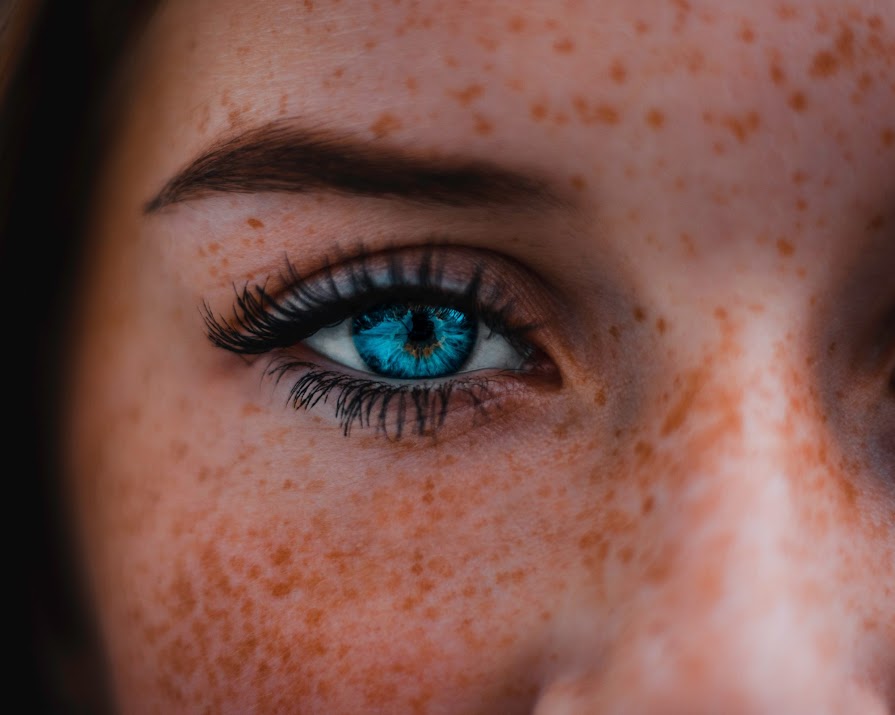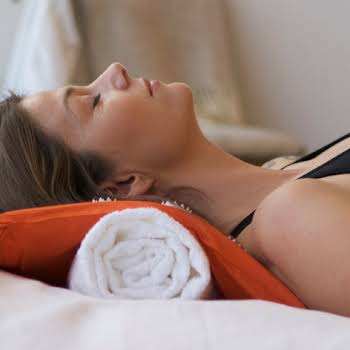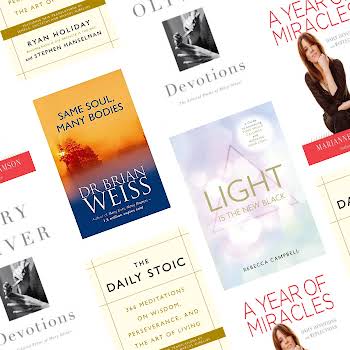Sponsored
Skin health: 90% of skin cancer in Ireland caused by UV rays from the sun
Sponsored By

By Grace McGettigan
25th May 2019
25th May 2019
Sponsored By

Did you know 11,000 people in Ireland are diagnosed with skin cancer every year? Nine out of every 10 cases are caused by UV rays from the sun or sunbeds. For that reason, skincare experts at La Roche-Posay have teamed up with the Irish Cancer Society to raise awareness for the best preventative measures – so that you (and your loved ones) can stay sun-safe this summer…
Skin cancer is the most common type of cancer in Ireland, with approximately 11,000 new cases being diagnosed every year. Of these, 9 out of 10 cases are caused by harmful UV rays from the sun or sunbeds. This doesn’t have to be the case, though; for the most part, our skin can be protected.
As May is sun awareness month, skincare brand La Roche-Posay has teamed up with the Irish Cancer Society to raise awareness for sun safety. Here we look at what skin cancer is; the products you can use to protect yourself – even if you have sensitive skin; how to choose the right sun protection for children, and other preventative techniques to give yourself the best chance.
What is skin cancer?
Skin cancer develops when your skin cells multiply faster than they’re meant to. While anybody can develop the disease, some people are more at risk than others.
Anyone who spends time outdoors is at risk of skin cancer, not just people who sunbathe. This includes people who work or play sports outdoors (whether it’s sunny outside or not); as well as people with sensitive skin.
If you have pale or freckled skin that tends not to tan (or burns before it tans); naturally red or fair hair; blue, green or grey eyes, you’re genetically more likely to develop skin cancer than others.
You’re also more at risk if you’ve ever used a sunbed; if you have a large number of moles; a history of sunburn; or a close family member who’s had skin cancer in the past.

What to look out for
Get to know your skin; what it looks like and what it feels like. It’s normal for little marks to come and go and moles often develop in people under the age of 30, but be conscious of where these are and how long they’ve been there.
Skin cancer comes in a number of shapes and sizes. They can appear as a small lump; a flat, red spot; a firm, red lump; a lump or spot that is tender to touch; an ulcer that will not heal; a lump with a scaly or horny top; rough, scaly patches; or a new or changing mole.
If you notice any of the above, consult your doctor just in case. It might be nothing – but if it is something, the sooner you spot it, the sooner it can be treated.
Prevention is always better than the cure, but should you develop skin cancer, early detection is key. According to the Irish Cancer Society, if the disease is spotted early, up to 90% of cases are curable.
Choosing the right SPF
SPF stands for ‘sun protection factor’, and when it comes to sunscreen, the higher the SPF number the better (for example, SPF 50 is far more effective than SPF 15).
Skincare brand La Roche Posay goes one step further in ensuring sun protection, as its sunscreens are classed as ‘broad spectrum’. This means they fight both UVA rays (which cause premature skin ageing) and UVB rays (which cause sunburn and skin damage).
When it comes to finding the right SPF product, La Roche Posay says to look out for the following: broad-spectrum protection; proven efficacy; water and sweat resistance; and texture that suits your skin type.

SPF for adults
La Roche-Posay’s Anthelios range is suitable for people of all ages, with all skin types.
La Roche-Posay Anthelios Shaka Fluid SPF 50+
This broad-spectrum sunscreen shields the skin from both UVA and UVB rays, as well as helping to prevent damage caused by infrared-A and pollution. Non-greasy and suitable for everyday wear, it sits well under make-up and is hydrating on the skin.
What’s more, its new, minimalist formula has fewer ingredients than other sun creams, yet added protection. It’s also safe for use around the eye area and is ultra-resistant to water, sweat and sand.

La Roche-Posay Anthelios Ultra Comfort
Anthelios Ultra Comfort has been specially formulated for people with sensitive eyes and for wearers of contact lenses. The skin around the eye area is 10-times thinner than the rest of your face, so sun protection to this area is vital. This non-perfumed formula is non-stinging, offers broad-spectrum protection and is also sweat-resistant.
SPF for children
When choosing a sun cream for kids, it must be easy to apply; have a safe, minimalist formula and offer high protection (while water-resistance is a plus).
La Roche-Posay’s Anthelios Dermo-Pediatrics sun cream is specifically formulated for children’s delicate skin; and what’s more, it’s suitable for skin that is prone to sensitivity, sun-intolerance or prickly-heat.
Importantly, it is a high protection suncare product (SPF 50+), thus protecting your child from both UVA and UVB rays.
The non-greasy, non-sticky formula is easy to apply and has a moisturising, velvety texture. It’s also very water resistant, dermatologically tested and hypo-allergenic.

Irish Cancer Society
For more than 10 years, La Roche-Posay has partnered with the Irish Cancer Society to raise vital funds for cancer research. The trusted skincare brand will donate €1 for every stickered Anthelios product sold, in an effort to help further the research and preventative work the charity does in Ireland.
Not only that, both La Roche-Posay and the Irish Cancer Society are calling on the public to become ‘sun aware’ by following these three steps:
Seek Shade
Always seek shade when UV rays are at their strongest (generally between 11 am and 3 pm) and don’t forget to check the UV Index.
Cover Up
Cover-up your skin as much as possible by wearing a shirt with a collar and a long skirt/trousers. Also, wear a hat that gives shade to your face, neck and ears. Wear wraparound sunglasses and make sure they give UV protection (sunglasses with UV protection usually come with a sticker to say so).
Apply Sunscreen
Use a broad-spectrum sunscreen with a high SPF (such as SPF 30, or higher) on exposed areas of the body and apply it liberally 20-minutes before going outside.
For more information about La Roche-Posay sun creams and the importance of being sun-safe, visit laroche-posay.ie.
Photo: CloudyPixel via Unsplash
Read more: Eczema: All you need to know about the chronic skin condition
Read more: Do you know how to check your moles properly?
Read more: Expert-ageing skincare: four simple steps for women over 30























